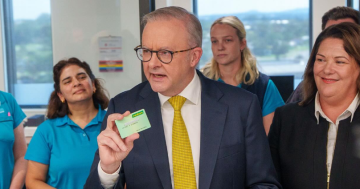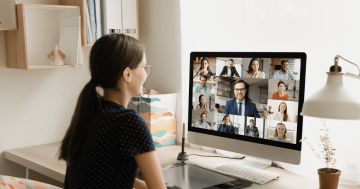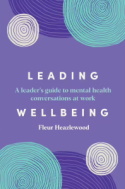Connie Mckeage* urges business leaders to prioritise mental health during the pandemic and she provides some simple strategies for checking in with staff.
 I usually talk about the financial implications of gender pay gaps or the importance of economic equality but in this environment it’s time to talk about the unseen mental health impacts of COVID-19 given that the road we are travelling will forever change at least four generations of people.
I usually talk about the financial implications of gender pay gaps or the importance of economic equality but in this environment it’s time to talk about the unseen mental health impacts of COVID-19 given that the road we are travelling will forever change at least four generations of people.
I can only imagine the rich fodder this global pandemic is providing to sociologists, psychologists and other observers of human behaviour.
Who would have imagined that in Australia shoppers would be fighting over toilet paper?
As leaders however we have to try and navigate through unprecedented and uncertain times.
Some of the implications are more visible such as the tremendous take up of technologies like Zoom, Teams and other communication tools.
The resistance by some leaders of supporting job flexibility and working from home has literally dissipated overnight and we have proven we can change quickly when we have no choice but to change and we have demonstrated that we can be as productive working from home as we were in the office.
What we think about most is not what we can see but what we cannot see.
We know that drinking and online gambling has increased dramatically during COVID.
Online gambling has risen in Australia by 67 per cent coupled with a 33 per cent rise in alcohol sales.
The technology adoption has not just been in Zoom and Teams but gambling apps.
When someone is physically present, we can quickly see if they’ve had too much to drink and of course all systems are locked down during working hours so no one could access non-approved websites.
Whilst people are primarily working from home over long periods of time, we now have little insight as to what is actually happening.
What the pandemic has done is brought leaders closer together as we all try and find a way to support our teams in a completely foreign environment.
So, in the spirit of helping each other and ensuring no person is left behind, I’ve listed below a few things our employees have found helpful.
- Ask that staff turn on their videos when communicating.
If someone continually refuses to turn on the video it may be worth further exploring why. - We have role models who share their stories and take away the stigma of asking for help.
- We brought a psychologist onboard for the staff and their families.
Getting the right one is important as practical tools for dealing with stress is critical in this environment. - When the lockdown Stage Four occurred in Melbourne we rang every employee living in Victoria as one on one conversations gives a better sense of what is really going on and enables you to get a better understanding of how you can help from replacing keyboards and chairs to just sharing a laugh.
- Anyone who lives alone we bought them a virtual voice assistant Alexa, so there would be someone/thing to talk of a day or night.
- We communicate and then communicate some more – up, down and across in the hope that by reinforcing the need to talk to one another someone somewhere will sense if someone else needs help.
Why is this so important? Because any man or woman suffering from mental health issues hurts productivity and their individual progress also suffers.
Anxiety and depression interferes with work and has a direct impact on family.
Success at work is an outcome so let’s ensure we are not turning a blind eye to the uncomfortable so we can give every man and woman the ability to perform at their best regardless of the circumstances.
*Connie Mckeage is Managing Director of the OneVue Group.
This article first appeared at financy.com.au











